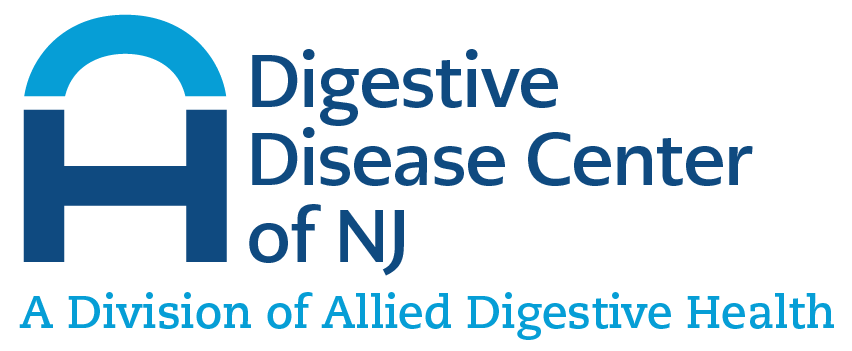
- June 22, 2022
Ulcerative Colitis (UC) and Crohn’s disease are the main two types of inflammatory bowel diseases characterized by chronic digestive tract inflammation. Inflammatory bowel disease is the umbrella term used to describe disorders that involve chronic inflammation of the digestive tract. The exact cause of inflammatory bowel disease remains unknown although there appears to be both a genetic component and abnormal immune response causing the immune system to attack the cells in the digestive tract.
While both conditions can have similarities and severe health implications if not diagnosed and treated properly, they have key differences.
This article explores the differences between Crohn’s disease and Ulcerative Colitis. But, first, let’s look at some similarities between these two gastrointestinal tract diseases.
What Are the Similarities of Ulcerative Colitis and Crohn’s Disease?
Crohn’s disease and ulcerative colitis tend to be confusing since they can have very similar signs and symptoms.
Although Crohn’s disease and ulcerative colitis can be diagnosed at any age, both diseases are common among young adults and teenagers, with both men and women being equally at risk. Some common shared signs and symptoms of the two diseases include:
-
- Stomach cramps, pain, or discomfort
- Constipation
- Frequent, recurring diarrhea
- Rectal bleeding
- Unintentional weight loss
- Fatigue and tiredness
- Unending feeling to move your bowels
- Fever
- Appetite loss
- Night sweats
- A feeling of “incomplete” bowel movement
- Blood and mucus in stool
What Are the Differences Between Crohn’s Disease and Ulcerative Colitis?
Although Crohn’s disease and ulcerative colitis have many similar symptoms, several things set them apart. These include:
Site of Inflammation
Crohn’s disease can affect and cause inflammation throughout your gastrointestinal tract. It can affect any part of the digestive system, from the mouth to the anus. However, it commonly develops in the small intestine, at the part leading to the large intestine or colon.
On the other hand, ulcerative colitis solely affects and resides within the large intestine. It varies among individuals, depending on what part of the colon is affected and the severity of the inflammation. Colitis affects everyone differently. The symptoms also vary in severity.
Inflammation Type
If you have Crohn’s disease, you’ll often have some healthy areas between inflamed parts. But, with ulcerative colitis, there’s continuous inflammation of the colon, meaning there are no healthy areas between inflamed spots.
Affected Layers
Ulcerative colitis only affects the innermost lining of the large intestine. Crohn’s disease is characterized by inflammation of the digestive tract that can involve the deeper layers of the digestive tract leading to other complications. Individuals who have Crohn’s disease are more likely to have mouth sores between gums and lower lips, along with or under the tongue, ulcers, anal fissures, and fistulas –these aren’t common in people with ulcerative colitis.
Symptomatic Differences
Since the symptoms of Crohn’s disease and ulcerative colitis are mostly similar, only a GI specialist can accurately diagnose you. But, you can also slightly determine the disease by looking at some telltale signs.
Some notable signs and symptoms of ulcerative colitis are blood and mucus in stool, tenesmus, frequent diarrhea, appetite loss, or and frequent urge for bowel movement.
Crohn’s disease, on the other hand, is characterized by nausea, vomiting, unintentional weight loss, rectal bleeding, and diarrhea. Other notable Crohn’s disease symptoms include mouth sores and inflammation in the eyes, joints, and skin.
The Crohn’s and Colitis Foundation states that approximately 10-15% of individuals with irritable bowel disease (IBD) have indeterminate colitis and display symptoms that are related and somehow similar to Crohn’s disease and ulcerative colitis, which can lead to a misdiagnosis. Thus, it’s advisable to visit a gastroenterologist to avoid being misdiagnosed.
Diagnostic Tests and Tools: Getting the Right Diagnosis
The ultimate diagnosis and testing method for ulcerative colitis is colonoscopy, which is done using a thin tube with a light and camera at the end, allowing your doctor to examine the colon or/and take a tissue sample for biopsy.
If the doctor, during a colonoscopy, notices a continuous inflammation starting from the rectum, that could be a sign of ulcerative colitis. Otherwise, you might have Crohn’s disease if the inflammation is in other parts of your GI tract.
To ascertain whether or not you have Crohn’s, your GI specialist or gastroenterologist can use magnetic resonance imaging (MRI) or CT scan if your small intestine is affected. They may also perform an endoscopy if the upper parts of your GI tract, like the esophagus, are involved in determining the site of inflammation. Other diagnosis methods for Crohn’s disease include capsule endoscopy.
Determining What Treatment Is Right for You
Diagnosis provides the basis for choosing a suitable treatment method. However, it’s worth noting that both Crohn’s disease and ulcerative colitis aren’t completely curable. Your GI specialist or physician can only work with you to manage the symptoms. The treatment majorly involves reducing inflammation, which helps suppress the symptoms, allows your body to repair damaged tissue, and eventually slows the disease’s progression.
Some treatment methods include:
-
- Anti-inflammatory drugs such as corticosteroids and oral 5-aminosalicylates.
- Immune system suppressors.
- Biologic therapies targeting proteins made by the immune system.
- Other drugs include antibiotics, vitamins, supplements, pain relievers, and antidiarrheals.
- Nutrition therapy.
- Surgery to remove damaged parts of your GI tract.
Your gastroenterologist will work with you to choose the appropriate treatment option depending on the affected area or site of inflammation and the severity of the disease.
How Can a Gastroenterologist Help With Crohn’s Disease and Ulcerative Colitis?
Crohn’s disease and ulcerative colitis are inflammatory bowel diseases affecting your digestive system. A gastroenterologist can help you handle these diseases better by conducting effective diagnoses and recommending the best treatment option for you.
At Red Bank Gastroenterology, we care about your gastrointestinal wellbeing. We offer a range of cutting-edge treatments for various gastrointestinal conditions and diseases to give you the diagnosis and relief you deserve. Our team of highly skilled gastroenterologists is always ready to provide you with the best care and get your health back as soon as possible.
Please don’t hesitate to contact us today for inquiries or schedule a consultation with one of our gastroenterologists today.
Footer
© All Rights Reserved


